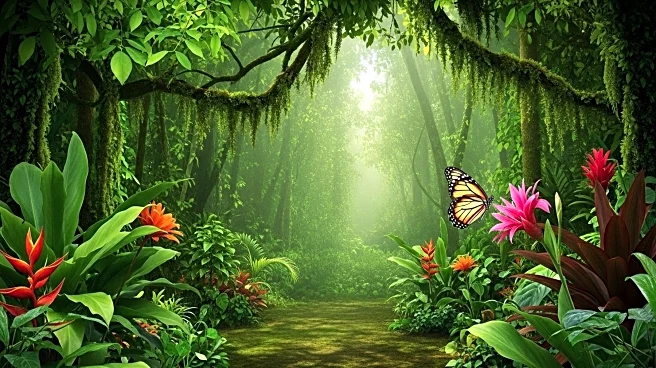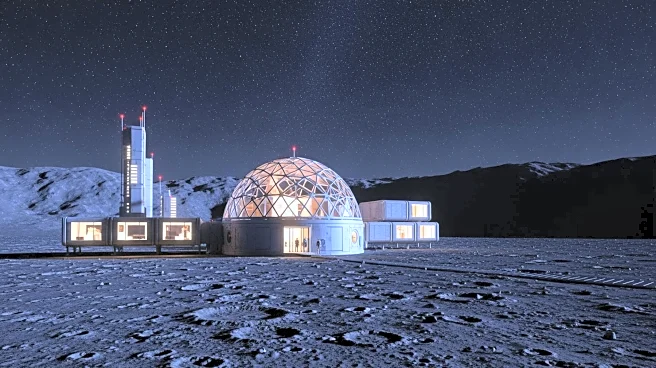What is the story about?
What's Happening?
A Brazilian judge has issued an injunction to suspend a decision by the country's competition watchdog, CADE, which had ordered the halt of the Amazon Soy Moratorium. This moratorium, established in 2006, aims to prevent soy production on newly deforested land in the Amazon. CADE's decision to halt the moratorium was based on concerns about information sharing among companies, which it deemed potentially anti-competitive. However, the suspension of CADE's order by Judge Adverci Rates allows the moratorium to remain in effect while an appeal is considered. The decision to maintain the moratorium has been supported by environmental groups and Brazil's Ministry of Environment and Climate Change, which argue that the moratorium has significantly reduced deforestation while allowing soy production to increase.
Why It's Important?
The suspension of CADE's decision to halt the Amazon Soy Moratorium is significant for environmental conservation efforts in the Amazon rainforest. The moratorium has been credited with saving approximately 18,000 square kilometers of rainforest from deforestation, demonstrating that agricultural expansion can coexist with forest protection. The continuation of the moratorium is crucial for maintaining biodiversity and combating climate change, as the Amazon plays a vital role in carbon sequestration. The decision also highlights the tension between economic interests and environmental protection, with agribusinesses and environmentalists often at odds over land use policies. The outcome of this legal battle could set a precedent for future conservation efforts and regulatory actions in Brazil and beyond.
What's Next?
The next steps involve a panel at CADE reviewing the appeal from the Brazilian Association of Vegetable Oil Industries, which could lead to a final decision on the moratorium's future. Environmental groups and government agencies are likely to continue advocating for the moratorium, emphasizing its environmental benefits. The case may also prompt discussions on how to balance economic growth with environmental sustainability, potentially influencing policy decisions in other regions facing similar challenges. Stakeholders, including international investors and environmental organizations, will be closely monitoring the situation, as the outcome could impact global supply chains and conservation strategies.
















